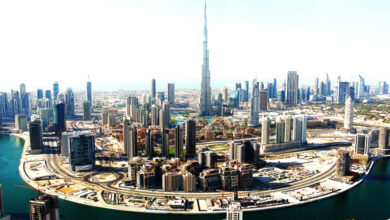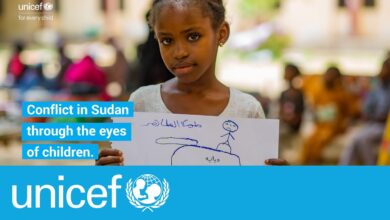Riding the waves for a blue future in Indonesia

[ad_1]
Comprising 17, 000 different islands, Indonesia is the world’s largest archipelagic nation. The ocean influences every part of life across these islands. 70% of the population lives in coastal areas and seven million Indonesians directly depend on the ocean for their livelihoods. Fish and seafood account for over half of the country’s protein intake every year.
Despite this reliance, the health of Indonesia’s ocean is wavering. Fish stocks are in decline and increasing levels of plastic pollution threaten the country’s marine ecosystem. Coastal areas are contending with climate change and rising ocean levels. 92 of the outermost islands in the country are facing the potential of sinking in the future as a result.
The need for a long-term plan for sustainable ocean development in Indonesia could not be more urgent.
Blue milestone
Last month, Indonesia reached a milestone towards this with the launch of its National Blue Economy Roadmap 2045: a blueprint for ocean-based development and priorities. The Roadmap reinforces Indonesia’s commitment to SDG 14 (Life below water)- the most underfunded goal globally- and sets out a path towards the long-term sustainability of ocean development across the country. In time, the Roadmap is expected to generate increasing revenues from ocean-based activities while conserving marine biodiversity and the health of the ocean, through sustainable use and the restoration of marine ecosystems.
At the request of the Ministry of National Development Planning, the UN in Indonesia played a key supporting role in the development of the Roadmap.
Preparations began last year, when the Government and the UN jointly formulated and launched the National Blue Agenda Action Partnership (NBAAP) – a framework to coordinate and streamline efforts across 8 government ministries, 12 development partners and 8 UN entities, including critical inputs on the blue economy from Peter Thomson, the UN Secretary General’s Special Envoy for the Ocean.
Throughout this planning process, the Resident Coordinator’s Office (RCO) provided the Government with expertise and guidance. As the Economist in the RCO, I provided my substantive inputs to ensure that the roadmap prioritizes the environmental aspects of development rather than only focusing on economic gains. I also advocated to ensure the Roadmap reflects the voice of the people who are at risk of being left behind, including coastal communities in remote locations.
Caption: Conserving and sustainably using Indonesia’s oceans will depend on how economic and social activities can be better managed.
Photo: © UNDP
Giving voice to coastal communities
Recognizing that in order for the Roadmap to be effective, it had to reflect the needs and concerns of Indonesia’s coastal communities, we worked with UNDP to organize several field-level consultations with coastal populations.
As part of the Resident Coordinator’s team, I joined government officials on these field visits to remote communities in East Java and East Nusa Tenggara. Today, East Nusa Tenggara is among the poorest provinces in Indonesia. The sustainable development of its blue economy could change that. With 596 islands and over 15 million hectares of water, the province offers opportunities for sustainable fishery infrastructure development, marine conservation, and the development of marine-based industries such tourism, craftmanship, and renewable energy development.
In East Java, we heard first-hand how marine pollution impacted the coastal communities and fishers, especially the decline in fish stock.
Findings from these visits and recommendations helped shape the final version of the Roadmap , proving how inclusive planning processes can lead to stronger policy outcomes.
Caption: Marine pollution and overuse of resources are some of the challenges Indonesia will have to tackle, to preserve its oceans and coasts sustainably.
Photo: © UNDP
Towards the next chapter
As the Resident Coordinator in Indonesia, Valerie Julliand, emphasised during the launch of the Roadmap – the task of collaborating with different stakeholders is often complex, but the time and effort invested in this initiative will pay off for Indonesia and its vision for a thriving blue economy and a healthier planet.
The roadmap is only the beginning of UN’s support to Indonesia’s blue agenda. Now we are focused on supporting its implementation and strengthening partnerships through the NBAAP framework.
This blog was written by Diandra Pratami, Economist at the Resident Coordinator’s Office in Indonesia, with editorial support from UN DCO. Six UN Agencies (FAO, ILO, UNDP, UNEP, UNESCO, UNIDO) were involved in the development of the roadmap, under the leadership of the Resident Coordinator’s Office. For more information about the UN’s work in Indonesia, please visit indonesia.un.org.
Source link



